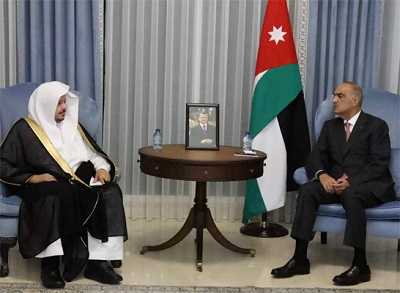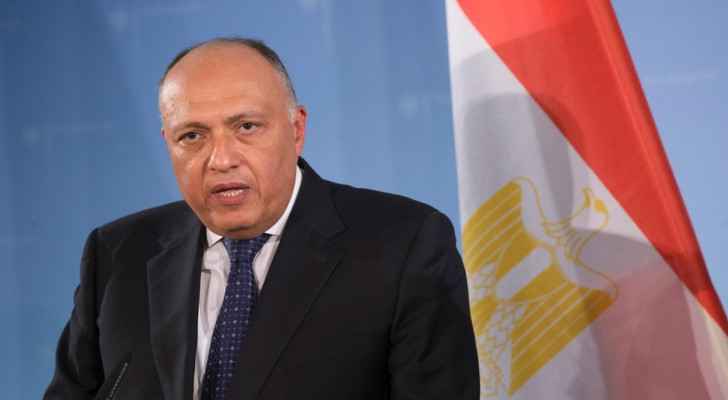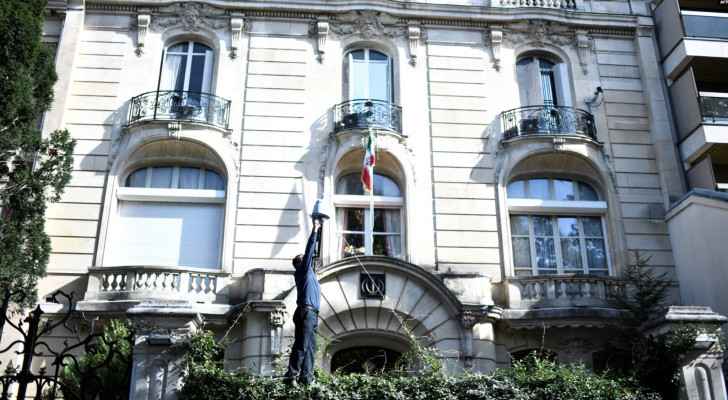
Dana Al Emam, The Jordan Times
AMMAN — The recent Ajloun excavations that triggered a wave of rumours regarding unearthed treasures were part of a Jordan Armed Forces' (JAF) mission to remove old Israeli spyware in six locations in the Kingdom, Chairman of the Joint Chiefs-of-Staff Gen. Mashal Al Zaben said on Tuesday.
These locations were discovered following an “accidental” blast that occurred on February 4, 2013 along the Khalidiyeh-Mafraq road in the eastern desert and revealed the existence of Israeli spying devices buried in the area, the army chief said at a press conference called for by Prime Minister Abdullah Ensour, and also attended by Interior Minister Hussein Majali, and Minister of State for Media Affairs and Communications Mohammad Momani.
Following the blast, the army carried a thorough survey in various parts of the Kingdom, identifying locations for similar spyware. “JAF also demanded Israel to provide all information on the locations of such devices, their mechanism, the type and quantity of explosives planted with the devices, in addition to the dates of the implantation," Zaben added.
Information provided by Israel matched data collected by JAF, assuring that spying devices were planted in the late 1960s after the 1967 Arab-Israeli war, according to the army chief.
“For over a year-and-a-half, JAF has been involved in an operation to identify and remove the devices,” which he described as a complex process.
Zaben noted that Ajloun site was the last on the mission’s list, and was treated carefully due to its proximity to Ajloun National University, a main road and a residential area, adding that JAF committed the Israeli side to remove the spyware in the area, planted in 1969.
“The Israeli side worked at the location under JAF supervision during a weekend and after official working hours, with ultimate security measures in place,” he said, adding that there was no collateral damage caused by detonating the explosive device.
Speaking at the conference, Ensour acknowledged that the government should have clarified the reason behind the Ajloun excavations earlier, although the JAF mission was “top confidential”.
The inconsistency of the government officials’ remarks and interpretations of the excavations in Ajloun has contributed to the rumour mill.
In remarks before lawmakers earlier this week, Majali attributed the excavations, which were surrounded with intensive police and army presence, in addition to road closures, to the installation by the army of pumps, boosters and warning devices, contradicting earlier official statements that came after social and new media sites were flooded with stories about finding huge quantities of Roman or Greek treasures worth billions.
Before that the government attributed the closures to landslides.
The two reasons were not satisfactory to the area’s residents who believed the authorities were attempting to conceal old treasures from the Roman era.
Zaben said that he takes responsibility for the contradictory statements, saying that officials who went public with the initial explanations relied on brief accounts he gave them, trying to maintain the secrecy of the operation.
Ensour said he asked Zaben, Majali and Momani to hold the meeting with media representatives to reveal the “full truth” about the issue, accusing “internal and external” parties of having fuelled the rumours.
Majali warned that anyone who spreads rumours or groundless news will face legal action, urging Jordanians to unite against such attempts and to always seek the truth.
For his part, Momani urged media organisations to check the authenticity of the news and not to spread rumours.
Latest News
 Dubai reels from floods chaos after record rains
Dubai reels from floods chaos after record rains Khasawneh, Saudi Shura Council speaker discuss bilateral ties, regional developments
Khasawneh, Saudi Shura Council speaker discuss bilateral ties, regional developments Egyptian Foreign Minister condemns potential Palestinian displacement as 'war crime'
Egyptian Foreign Minister condemns potential Palestinian displacement as 'war crime' Travelers from Jordan advised to confirm flights amid Gulf weather turmoil
Travelers from Jordan advised to confirm flights amid Gulf weather turmoil France summons Iranian ambassador over strikes against “Israel”
France summons Iranian ambassador over strikes against “Israel”
Most Read Articles
- Dubai reels from floods chaos after record rains
- King, Bahrain monarch stress need to maintain Arab coordination
- Security Council to vote Thursday on Palestinian state UN membership
- Khasawneh, Saudi Shura Council speaker discuss bilateral ties, regional developments
- Hizbollah says struck Israel base in retaliation for fighters' killing
- Tesla asks shareholders to reapprove huge Musk pay deal
- Jordan will take down any projectiles threatening its people, sovereignty — Safadi
- The mystery of US interest rates - By The mystery of US interest rates, The Jordan Times
- Princess Basma checks on patients receiving treatments
- Knights of Change launches nationwide blood donation campaign for Gaza